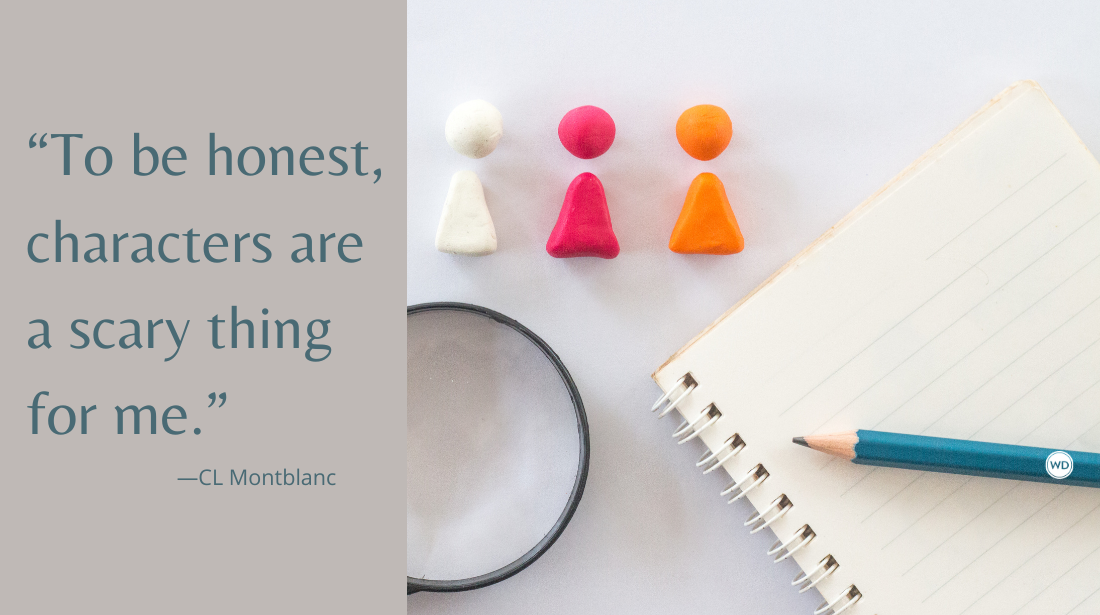Shannon Chakraborty: On Humor and Joy in Fantasy
Internationally bestselling author Shannon Chakraborty discusses how she leaned into joy when writing her new fantasy novel, The Adventures of Amina al-Sirafi.
Shannon Chakraborty is the author of the critically acclaimed and internationally bestselling Daevabad Trilogy. Her work has been translated into over a dozen languages and nominated for the Hugo, Locus, World Fantasy, Crawford, and Astounding awards. You can find her online at sachakraborty.com or on Instagram and Twitter.
In this post, Shannon discusses how she leaned into joy when writing her new fantasy novel, The Adventures of Amina al-Sirafi, her advice for other writers, and more!
Name: Shannon Chakraborty
Literary agent: Jen Azantian
Book title: The Adventures of Amina al-Sirafi
Publisher: HarperVoyager
Release date: February 28, 2023
Genre/category: Fantasy
Previous titles: The Daevabad Trilogy (The City of Brass, The Kingdom of Copper, and The Empire of Gold) and The River of Silver
Elevator pitch for the book: Sinbad the Sailor meets Oceans 11 wherein an infamous, retired pirate gets pulled back into the game when she’s offered to right a wrong from her past and score a fabled treasure. But assembling her old crew and outwitting a ruthless ex-Crusader aren’t her only problems because she’s learned the hard way that the fantastical legends behind such treasures hold deadly truths, and now they’re coming for her.
What prompted you to write this book?
I wrote The Adventures of Amina al-Sirafi as the sort of book I’ve been craving in the past few years: a madcap adventure tale that offers excitement and escapism, but also a good dose of heart. It touches upon plenty of serious topics: class and societal oppression, the struggle to balance parenthood and your dreams, and perhaps most obviously, the “crafting” of history and one’s legacy.
But it’s also a story about a deeply flawed woman who finds faith and family in later life, about clinging to humor and hope even in the bleakest of circumstances.
How long did it take to go from idea to publication? And did the idea change during the process?
I originally had the idea for the story and character in my mind when querying for an agent with my first novel, The City of Brass, about seven years ago. But I didn’t get a chance to start writing it until 2019, by the point I was a published author with four books under my belt and far more intrigued by the idea of intentionally crafting a story and how that could intersect with how we create history. So instead of being a book with two linear lines (the current story and flashbacks to how Amina became a pirate), we see her retelling both tales and taking an active part in interrogating how she became so notorious.
Were there any surprises in the writing process for this book?
The book ended up leaning into humor and joy a lot more than I had originally expected as an epic fantasy writer—we’re often more known for killing off beloved characters! But not only was this my pandemic project—one I wanted to write with a lightness and heart I think readers need—I was also conscious of my own role in crafting a narrative of the historical past. And I didn’t want it to be a grim one, especially when it came to women’s lives: we have enough.
History is rarely kind to women, and I don’t want to sugar coat that fact, but I also fear frequently presenting it as a constant misery in fiction is its own unconscious misogyny. Women have always made lives for themselves and found joy in those lives, and I wanted to show this.
I was also very tired with the popular perception of Muslim women cloistered away for centuries when as soon as you dive into the history, you find richer lives of chaotic divorcees and thieves and scheming queens and educated scholars. Amina sprang from all of that.
What do you hope readers will get out of your book?
This is the history nerd in me, but I hope at least some readers will be intrigued enough about the medieval Islamicate world and larger Indian Ocean history that inspired this book to go and learn more about it! This is an incredibly vast, fascinating, and cosmopolitan slice of the human story that doesn’t get explored often enough and hopefully I shared enough resources in the “Further Reading” section to help curious people on their way.
If you could share one piece of advice with other writers, what would it be?
Finish the draft. Even if it’s a mess of notes to yourself, meandering scenes, and outlined chapters.
I’m a firm believer that pushing through to create that finished plot arc—even if it’s incredibly rough—is the best way to get an overall picture of the story and where the character’s journey and emotional beats need to be. For me, it’s always easier to edit and work on a partial manuscript with existing notes and scene attempts rather than face the blank page.
Robert Lee Brewer is Senior Editor of Writer's Digest, which includes managing the content on WritersDigest.com and programming virtual conferences. He's the author of 40 Plot Twist Prompts for Writers: Writing Ideas for Bending Stories in New Directions, The Complete Guide of Poetic Forms: 100+ Poetic Form Definitions and Examples for Poets, Poem-a-Day: 365 Poetry Writing Prompts for a Year of Poeming, and more. Also, he's the editor of Writer's Market, Poet's Market, and Guide to Literary Agents. Follow him on Twitter @robertleebrewer.








